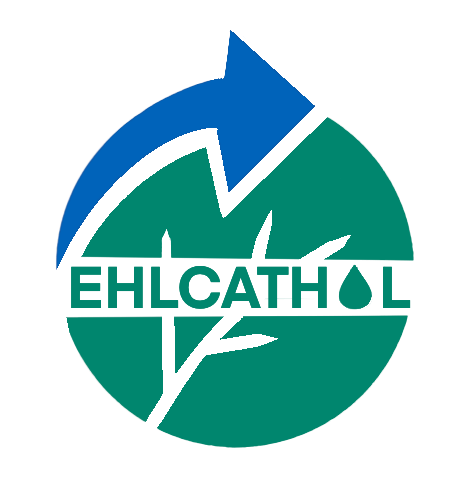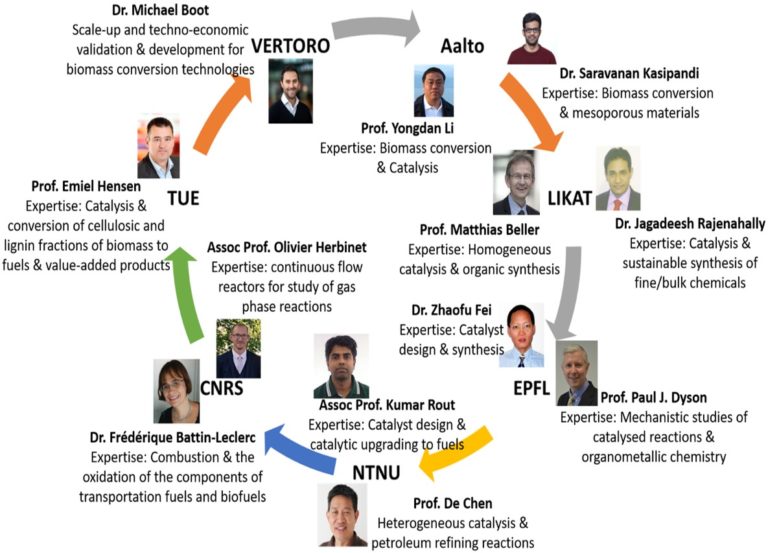
Aalto
 Prof. Yongdan Li (male) has been Professor of Industrial Chemistry at Aalto since 06/2017, and Professor of Industrial Catalysis (up to 10% Commitment in 2020) in School of Chemical Engineering, Tianjin University, China. In 1994-2017, he was Professor of Industrial Catalysis and Director of Tianjin Key Lab on Applied Catalysis in Tianjin University. He was also a vising professor in 1999 the Hong Kong University of Science and Technology, 2007 EPFL, Switzerland, 2009 University of Michigan, USA, and 2015 Yale University, USA. After his PhD 1989 in Tianjin University, he worked 1 year as a lecturer in his alma mater and after that he had post-doc fellowships 1990-91 in University of Twente, the Netherlands, and 1991-92 in CNRS, Nancy, France. Prof. Li is an Associate Editor of Catalysis Today (2009-), and Journal of the Chemical Industry & Engineering Society of China (CIESC Journal) (2011-). He is also the member of the Editorial Board in CIESC Journal, Chinese Journal of Catalysis, Journal of Fuel Chemistry and Technology, Chinese Journal of Molecular Catalysis, etc. In addition, he has hosted and chaired several international conferences such as EECAT 2020, The 4th International Symposium on Catalytic Science and Technology in Sustainable Energy and Environment, ITICAT2019 Workshop on Catalytic Reactions with Ion Transfer through Interfaces, 10th International Conference on Environmental Catalysis ICEC 2018 & the 3rd EECAT 2018, 2017 18th National Congress on Catalysis in China, the 2nd EECAT 2016 and 1st EECAT. Researcher unique identifiers of Prof. Li are: ORCID 0000-0002-0430-9879, Publons/Research ID L-7304-2017 (h-index 50, over 9235 citations to 329 articles, 5 Apr 2020), Scopus AuthorID 7502076108. URL for web site: https://people.aalto.fi/yongdan.li
Prof. Yongdan Li (male) has been Professor of Industrial Chemistry at Aalto since 06/2017, and Professor of Industrial Catalysis (up to 10% Commitment in 2020) in School of Chemical Engineering, Tianjin University, China. In 1994-2017, he was Professor of Industrial Catalysis and Director of Tianjin Key Lab on Applied Catalysis in Tianjin University. He was also a vising professor in 1999 the Hong Kong University of Science and Technology, 2007 EPFL, Switzerland, 2009 University of Michigan, USA, and 2015 Yale University, USA. After his PhD 1989 in Tianjin University, he worked 1 year as a lecturer in his alma mater and after that he had post-doc fellowships 1990-91 in University of Twente, the Netherlands, and 1991-92 in CNRS, Nancy, France. Prof. Li is an Associate Editor of Catalysis Today (2009-), and Journal of the Chemical Industry & Engineering Society of China (CIESC Journal) (2011-). He is also the member of the Editorial Board in CIESC Journal, Chinese Journal of Catalysis, Journal of Fuel Chemistry and Technology, Chinese Journal of Molecular Catalysis, etc. In addition, he has hosted and chaired several international conferences such as EECAT 2020, The 4th International Symposium on Catalytic Science and Technology in Sustainable Energy and Environment, ITICAT2019 Workshop on Catalytic Reactions with Ion Transfer through Interfaces, 10th International Conference on Environmental Catalysis ICEC 2018 & the 3rd EECAT 2018, 2017 18th National Congress on Catalysis in China, the 2nd EECAT 2016 and 1st EECAT. Researcher unique identifiers of Prof. Li are: ORCID 0000-0002-0430-9879, Publons/Research ID L-7304-2017 (h-index 50, over 9235 citations to 329 articles, 5 Apr 2020), Scopus AuthorID 7502076108. URL for web site: https://people.aalto.fi/yongdan.li
Project Manager at Aalto University, R esearch and Innovation Services
esearch and Innovation Services
 Dr. Saravanan Kasipandi (male) gained his doctoral degree in Chemistry of heteroneous catalysis in 2016, CSIR Central Salt & Marine Chemicals Research Institute, Gujarat, India. Until end of 2019, he was a Postdoctoral fellow in School of Chemical Engineering, Sungkyunkwan University (SKKU), South Korea. He started as a Postdoctoral Researcer at Aalto in the beginning of 2020. He has gained twice the Brain Korean-21plus (BK 21+) post-doc award, and twice the best oral presentation award of the Korean Society of Industrial and Engineering Chemistry (KSIEC). ORCID 0000-0002-9502-5125, Publons/Research ID F-5984-2012, Scopus AuthorID 57210822720. URL https://scholar.google.com/citations?user=oiGFd1EAAAAJ&hl=en
Dr. Saravanan Kasipandi (male) gained his doctoral degree in Chemistry of heteroneous catalysis in 2016, CSIR Central Salt & Marine Chemicals Research Institute, Gujarat, India. Until end of 2019, he was a Postdoctoral fellow in School of Chemical Engineering, Sungkyunkwan University (SKKU), South Korea. He started as a Postdoctoral Researcer at Aalto in the beginning of 2020. He has gained twice the Brain Korean-21plus (BK 21+) post-doc award, and twice the best oral presentation award of the Korean Society of Industrial and Engineering Chemistry (KSIEC). ORCID 0000-0002-9502-5125, Publons/Research ID F-5984-2012, Scopus AuthorID 57210822720. URL https://scholar.google.com/citations?user=oiGFd1EAAAAJ&hl=en
Likat
 Prof. Matthias Beller (male) has been the Director of Leibniz-Institut für Katalyse e.V. (LIKAT) since 2006. He is Vice President of the Leibniz Society, one of the major science organizations. He studied chemistry at the University of Göttingen, Germany, where he completed his Ph.D. thesis in 1989 in the group of L.-F. Tietze. As recipient of Liebig fellowship, he spent one year with K. B. Sharpless at MIT, USA, as a postdoctoral fellow. From 1991 to 1995, Beller was active in industry. After being at the TU München as Professor for Inorganic Chemistry, in 1998, he relocated to Rostock to head the Institute for Organic Catalysis, which became in 2006 the Leibniz-Institute for Catalysis. He has received a number of awards including the Otto-Roelen Medal and the Leibniz-Price of the DFG. In 2006, he was also awarded “Entrepreneur of the Year” of Rostock and he received the German Federal Cross of Merit. Since then, the work of his group was awarded the first “European price for Sustainable Chemistry”, the “Paul-Rylander Award” of the Organic Reaction Catalysis Society of the USA, the Gay-Lussac-Alexander-von-Humboldt-Prize of the French Academy of Sciences, and the Emil Fischer Medal of the German Chemical Society. He was awarded honorary doctoral degrees from the University of Antwerp, Belgium, and the University of Rennes 1, France. He is a member of the German National Academia of Science “Leopoldina” and three other Academies of Sciences. He is serving as the Chair of Editorial board for the journal ChemSusChem and Editor for Journal of Catalysis. His research focusses on applying homogeneous and heterogeneous catalysis for the synthesis of fine and bulk chemicals as well as energy technologies The research of his group has been published in > 970 original articles, reviews and >120 patent applications have been filed (H index 130).
Prof. Matthias Beller (male) has been the Director of Leibniz-Institut für Katalyse e.V. (LIKAT) since 2006. He is Vice President of the Leibniz Society, one of the major science organizations. He studied chemistry at the University of Göttingen, Germany, where he completed his Ph.D. thesis in 1989 in the group of L.-F. Tietze. As recipient of Liebig fellowship, he spent one year with K. B. Sharpless at MIT, USA, as a postdoctoral fellow. From 1991 to 1995, Beller was active in industry. After being at the TU München as Professor for Inorganic Chemistry, in 1998, he relocated to Rostock to head the Institute for Organic Catalysis, which became in 2006 the Leibniz-Institute for Catalysis. He has received a number of awards including the Otto-Roelen Medal and the Leibniz-Price of the DFG. In 2006, he was also awarded “Entrepreneur of the Year” of Rostock and he received the German Federal Cross of Merit. Since then, the work of his group was awarded the first “European price for Sustainable Chemistry”, the “Paul-Rylander Award” of the Organic Reaction Catalysis Society of the USA, the Gay-Lussac-Alexander-von-Humboldt-Prize of the French Academy of Sciences, and the Emil Fischer Medal of the German Chemical Society. He was awarded honorary doctoral degrees from the University of Antwerp, Belgium, and the University of Rennes 1, France. He is a member of the German National Academia of Science “Leopoldina” and three other Academies of Sciences. He is serving as the Chair of Editorial board for the journal ChemSusChem and Editor for Journal of Catalysis. His research focusses on applying homogeneous and heterogeneous catalysis for the synthesis of fine and bulk chemicals as well as energy technologies The research of his group has been published in > 970 original articles, reviews and >120 patent applications have been filed (H index 130).
Group web: https://www.catalysis.de/en/people/beller-matthias/. Scopus Author IDID: 710177737.
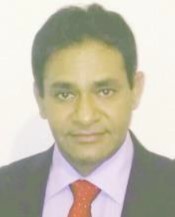 Dr. Jagadeesh Rajenahally (male) is presently a Group Leader for Synergy between Homogeneous and Heterogeneous Catalysis at Leibniz-Institut für Katalyse e.V. (LIKAT) He obtained Ph.D. (2006) from Bangalore University, India. After having performed Postdoctoral Research (2006-2008) at the University of Florida, USA and worked few months as Assistant Professor (2009-2010) at VIT University, India he joined Leibniz-Institut für Katalyse e.V. (LIKAT) in the year 2010. He joined LIKAT initially as Postdoctoral Scientist in the group of Prof. Matthias Beller, and then became Leader for Explorative Projects and Group Leader. His research focuses on catalysis for sustainable synthesis of fine/bulk chemicals and life science molecules as well as valorization of renewable resources. His and his group research works resulted >75 publications with H index 25.
Dr. Jagadeesh Rajenahally (male) is presently a Group Leader for Synergy between Homogeneous and Heterogeneous Catalysis at Leibniz-Institut für Katalyse e.V. (LIKAT) He obtained Ph.D. (2006) from Bangalore University, India. After having performed Postdoctoral Research (2006-2008) at the University of Florida, USA and worked few months as Assistant Professor (2009-2010) at VIT University, India he joined Leibniz-Institut für Katalyse e.V. (LIKAT) in the year 2010. He joined LIKAT initially as Postdoctoral Scientist in the group of Prof. Matthias Beller, and then became Leader for Explorative Projects and Group Leader. His research focuses on catalysis for sustainable synthesis of fine/bulk chemicals and life science molecules as well as valorization of renewable resources. His and his group research works resulted >75 publications with H index 25.
Group web: https://www.catalysis.de/en/people/rajenahally-jagadeesh/. Scopus Author ID: 9639518000.
EPFL
 Prof. Paul J. Dyson joined the Institute of Chemical Sciences and Engineering at the EPFL in 2002 where he heads the Laboratory of Organometallic and Medicinal Chemistry, and between 2008 and 2016 chaired the Institute. He has won several prizes including the Werner Prize of the Swiss Chemical Society in 2004, the Award for Outstanding Achievements in Bioorganometallic Chemistry in 2010, the Centennial Luigi Sacconi Medal 2011 of the Italian Chemical Society, the Bioinorganic Chemistry Award of the Royal Society of Chemistry in 2015 and the European Sustainable Chemistry Award of the European Chemical Society in 2018. He is also a Clarivate Highly Cited Researcher and has an H-index >100 (google scholar). In recent years he has held visiting professorships at the University of Bourgogne, University of Pierre et Marie Curie, University of Vienna, University of Rome Tor Vergara, Chimie Paristech and Shangai Jiao Tong University. URL for web site: www.lcom.epfl.ch
Prof. Paul J. Dyson joined the Institute of Chemical Sciences and Engineering at the EPFL in 2002 where he heads the Laboratory of Organometallic and Medicinal Chemistry, and between 2008 and 2016 chaired the Institute. He has won several prizes including the Werner Prize of the Swiss Chemical Society in 2004, the Award for Outstanding Achievements in Bioorganometallic Chemistry in 2010, the Centennial Luigi Sacconi Medal 2011 of the Italian Chemical Society, the Bioinorganic Chemistry Award of the Royal Society of Chemistry in 2015 and the European Sustainable Chemistry Award of the European Chemical Society in 2018. He is also a Clarivate Highly Cited Researcher and has an H-index >100 (google scholar). In recent years he has held visiting professorships at the University of Bourgogne, University of Pierre et Marie Curie, University of Vienna, University of Rome Tor Vergara, Chimie Paristech and Shangai Jiao Tong University. URL for web site: www.lcom.epfl.ch
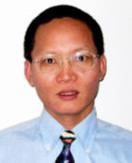 Dr. Zhaofu Fei (male) received his doctoral degree in Chemistry of 1999 from Technical University of Braunschweig, Germany. After postdoc experiences in UK and Germany, he joined EPFL as a senior scientist in august 2002. He has experience in catalyst design and synthesis; purification and characterization. He has over 15 years research experience in working with ionic liquids and polymers including scale-up and commercialization of functionalized ionic liquids and distribution through industry partner Sigma-Aldrich.
Dr. Zhaofu Fei (male) received his doctoral degree in Chemistry of 1999 from Technical University of Braunschweig, Germany. After postdoc experiences in UK and Germany, he joined EPFL as a senior scientist in august 2002. He has experience in catalyst design and synthesis; purification and characterization. He has over 15 years research experience in working with ionic liquids and polymers including scale-up and commercialization of functionalized ionic liquids and distribution through industry partner Sigma-Aldrich.
He is highly skilled in multi-nuclear operando NMR technique for monitoring catalytic processes and explaining the mechanism.
NTNU
 De Chen is the professor in catalysis at the Department of Chemical Engineering, Norwegian University of Science and Technology (NTNU) since 2001 (associate professor 1998-2001). He earned his PhD in industrial catalysis at NTNU, Norway, in 1998. He was a visiting professor at the University of California at Berkeley (2009-2010) and East China University of Science and Technology (2017-2018). His work on combined theoretic and experimental heterogeneous catalysis has in several instances led to the development of new ideas for catalysts for gas to liquids, monomer production for polyvinyl chloride (PVC), biomass to liquids, natural gas to olefins, hydrogen production and fuels, as well as materials for CO2 capture technologies and energy storages. He is a member of the Norwegian Academy of Technological Science. He is also a member of European Kinetic Networks, a leader group at the SFI center of industrial Catalysis Science and Innovation (iCSI), and FME center of biomass for fuels (Bio4Fuels). He well-published more than 350 scientific papers in peer-reviewed journals (citations more than 13100, H-index:62, and 47 since 2015, source: Google Scholar) and more than 10 patents.
De Chen is the professor in catalysis at the Department of Chemical Engineering, Norwegian University of Science and Technology (NTNU) since 2001 (associate professor 1998-2001). He earned his PhD in industrial catalysis at NTNU, Norway, in 1998. He was a visiting professor at the University of California at Berkeley (2009-2010) and East China University of Science and Technology (2017-2018). His work on combined theoretic and experimental heterogeneous catalysis has in several instances led to the development of new ideas for catalysts for gas to liquids, monomer production for polyvinyl chloride (PVC), biomass to liquids, natural gas to olefins, hydrogen production and fuels, as well as materials for CO2 capture technologies and energy storages. He is a member of the Norwegian Academy of Technological Science. He is also a member of European Kinetic Networks, a leader group at the SFI center of industrial Catalysis Science and Innovation (iCSI), and FME center of biomass for fuels (Bio4Fuels). He well-published more than 350 scientific papers in peer-reviewed journals (citations more than 13100, H-index:62, and 47 since 2015, source: Google Scholar) and more than 10 patents.
 Associate Prof. Kumar Rout at the catalysis group, Department of Chemical Engineering, Norwegian University of science and Technology, and Kinetic and Catalysis division of SINTEF Industry, has long worked on different techniques for biomass conversion including fast hydropyrolysis of biomass coupling with catalytic upgrading to fuels in pilot scale, hydrogen production from biomass derived compounds by sorption enhanced reforming or gasification, one-pot synthesis of diols from cellulose and lignocellulosic biomass and biomass-to-liquid (BtL) Fischer-Tropsch synthesis. Prof. (Dr) Rout has good experience on catalyst development including advanced catalyst preparation, characterization, kinetic study, reactor design, process design and economic evaluation. Recently, Prof. (Dr) Rout received Gianni Astarita Young Scientist award for outstanding research in Chemical Reaction Engineering. He published more than 16 scientific papers (H-index 8) and has filed 10 patents.
Associate Prof. Kumar Rout at the catalysis group, Department of Chemical Engineering, Norwegian University of science and Technology, and Kinetic and Catalysis division of SINTEF Industry, has long worked on different techniques for biomass conversion including fast hydropyrolysis of biomass coupling with catalytic upgrading to fuels in pilot scale, hydrogen production from biomass derived compounds by sorption enhanced reforming or gasification, one-pot synthesis of diols from cellulose and lignocellulosic biomass and biomass-to-liquid (BtL) Fischer-Tropsch synthesis. Prof. (Dr) Rout has good experience on catalyst development including advanced catalyst preparation, characterization, kinetic study, reactor design, process design and economic evaluation. Recently, Prof. (Dr) Rout received Gianni Astarita Young Scientist award for outstanding research in Chemical Reaction Engineering. He published more than 16 scientific papers (H-index 8) and has filed 10 patents.
LRGP-CNRS
 Frédérique Battin-Leclerc (Female) entered CNRS in 1991 and is now 1st Class CNRS Research Director. She is Specialist in detailed kinetic mechanisms to model gas-phase complex reactions, especially the combustion and the oxidation of the components of transportation fuels and biofuels. Her work has led to 173 peer-reviewed publications (h-factor = 52 (Scopus)), 1 patent; she was granted an Advanced ERC Grant in 2008 and CNRS Silver medal in 2010. She was co-chaired of the 34th International Symposium on Combustion in 2012 and Chair of the management committee of the COST Action CM0901 (2010-2014) and leader of the Working Package 1 of the Cost Action Smartcats (2015-2019).
Frédérique Battin-Leclerc (Female) entered CNRS in 1991 and is now 1st Class CNRS Research Director. She is Specialist in detailed kinetic mechanisms to model gas-phase complex reactions, especially the combustion and the oxidation of the components of transportation fuels and biofuels. Her work has led to 173 peer-reviewed publications (h-factor = 52 (Scopus)), 1 patent; she was granted an Advanced ERC Grant in 2008 and CNRS Silver medal in 2010. She was co-chaired of the 34th International Symposium on Combustion in 2012 and Chair of the management committee of the COST Action CM0901 (2010-2014) and leader of the Working Package 1 of the Cost Action Smartcats (2015-2019).
 Olivier Herbinet (male) is Associate Professor at University of Lorraine since 2007. He is a specialist in the use of continuous flow reactors (e.g., jet-stirred reactor and flow tube reactors) for the study of gas phase reactions (oxidation and pyrolysis) of organic compounds, using a wide range of diagnostics from gas chromatography to mass spectrometry with ionization using synchrotron radiation. These studies led to 82 peer-reviewed publications (h-factor = 31 (WoS)). He was vice leader of the Working Package 1 of the Cost Action Smartcats (2015-2019).
Olivier Herbinet (male) is Associate Professor at University of Lorraine since 2007. He is a specialist in the use of continuous flow reactors (e.g., jet-stirred reactor and flow tube reactors) for the study of gas phase reactions (oxidation and pyrolysis) of organic compounds, using a wide range of diagnostics from gas chromatography to mass spectrometry with ionization using synchrotron radiation. These studies led to 82 peer-reviewed publications (h-factor = 31 (WoS)). He was vice leader of the Working Package 1 of the Cost Action Smartcats (2015-2019).
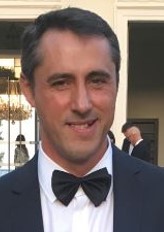 Roda Bounaceur (male) is CNRS research engineer in LRGP-Nancy where he works on detailed kinetic modeling and process modeling. One of his research interest is the development of detailed kinetic mechanisms for gas-phase reactions, with emphasis on the combustion and pyrolysis of the components of transportation fuels. His main objective is to determine and to develop different numerical recipes in order to solve mathematical problems used in process simulation. These studies led to 87 peer-reviewed publications (h-factor = 27 (WoS)).
Roda Bounaceur (male) is CNRS research engineer in LRGP-Nancy where he works on detailed kinetic modeling and process modeling. One of his research interest is the development of detailed kinetic mechanisms for gas-phase reactions, with emphasis on the combustion and pyrolysis of the components of transportation fuels. His main objective is to determine and to develop different numerical recipes in order to solve mathematical problems used in process simulation. These studies led to 87 peer-reviewed publications (h-factor = 27 (WoS)).

TU/e
 Prof. Emiel Hensen (male) is full professor and chair holder IMC at TU/e. His research focuses a.o. on the rational design of new and improved catalytic systems for the efficient and selective conversion of cellulosic and lignin fractions of biomass to value-added products. Hensen has (co-)authored 505 peer-reviewed publications (> 16,000 citations), 6 patents and has an h-index of 68.
Prof. Emiel Hensen (male) is full professor and chair holder IMC at TU/e. His research focuses a.o. on the rational design of new and improved catalytic systems for the efficient and selective conversion of cellulosic and lignin fractions of biomass to value-added products. Hensen has (co-)authored 505 peer-reviewed publications (> 16,000 citations), 6 patents and has an h-index of 68.
 Dr. Michael Boot (male) holds an MSc. and PhD degree in Mech. Eng., as well as an MBA). Boot is an interdepartmental fellow at TU/e, whose research activities are focused on scale-up and techno-economic validation of, and application development for, biomass conversion technologies. He has authored 47 peer-reviewed papers and submitted 10 patents in the domain of renewable fuels and biomass conversion, and is responsible for the valorisation activities and project management within the IMC group.
Dr. Michael Boot (male) holds an MSc. and PhD degree in Mech. Eng., as well as an MBA). Boot is an interdepartmental fellow at TU/e, whose research activities are focused on scale-up and techno-economic validation of, and application development for, biomass conversion technologies. He has authored 47 peer-reviewed papers and submitted 10 patents in the domain of renewable fuels and biomass conversion, and is responsible for the valorisation activities and project management within the IMC group.
VERTORO
Dr. Michael Boot (CEO), male, received his MSc. and PhD. in Mechanical Engineering (specialty in fuel design) in 2005 and 2010, respectively, from Eindhoven University of Technology, the Netherlands. In 2017, Michael received an Executive MBA from TIAS Business School in Tilburg, the Netherlands. From 2009 onwards, Michael has followed a dual career path, both as an entrepreneur and as a scientist. Michael co-founded multiple tech-startups in the biofuel, turbomachinery, biocrude, and automotive design domains, all of which are still alive and kicking. At the This proposal version was submitted by Yongdan Li on 28/04/2020 16:35:15 Brussels Local Time. Issued by the Funding & Tenders Portal Submission System. 10 EHLCATHOL template WP18-20 v20180201 same time, Michael rose through the ranks of academia from PhD student (2005-2010), to part-time assistant professor (2010-2015), to Fellow (2016 onwards). Relevant experience & Role in the project: Bridging academic and RTI technology to industry, Business development, IP management
Panos Kouris holds a BSc. and a MEng in Chemical Engineering, from the Department of Chemical Engineering of the University of Patras in Greece. During this period, he investigated and developed a new process for the polyphenols recovery and methane production from olive oil mill wastewaters. In 2015, he obtained his MSc. in Process Engineering from the Department of Chemical Engineering and Chemistry of Eindhoven University of Technology, where he investigated a new process for the recovery of useful components from lignocellulosic biomass waste streams by using Deep Eutectic Solvents (DES). Currently, he is a PhD candidate (TU/e) and work package leader (InSciTe) under the supervision of Professor Emiel Hensen and Dr. Michael Boot, where he investigates the development of a new generation of liquid biofuels from lignin and the construction of the world’s first multifunctional pilot plant for lignocellulosic biomass conversion. Relevant experience & Role in the project – Lab, bench and pilot scale optimization of the CLO process and business development
Dannie van Osch finished his M.Sc. degree in chemical engineering and chemistry in 2014 with the distinction cum laude from Eindhoven University of Technology (TU/e). In 2018 he defended his Ph.D. thesis, also at TU/e. During his academic career he has focused on sustainable chemistry, which includes research into spinning disc reactors, microfluidic devices, visible light photocatalysis, sustainable solvents, and crude lignin oil. His research during his PhD gained attention in the Dutch national news. In 2018 Dannie was selected as Young European Talent, while in 2019 he was chosen as CAS Future Leader and awarded with a One Young World Shell Scholarship. Since February 2019 he is also a member of the Brightlands Young Professionals Advisory Board. Relevant experience & Role in the project – Techno-economic analysis
Timothy Boon von Ochssée (CFO), male, received his MSc in International Economics and Finance from the University of Tilburg in 2005 and a PhD. in Energy Economics (specialty using option-game analysis in gas markets) from the University of Groningen in 2010. From 2010 onwards, Timothy endeavoured to work as an energy economist at ABN AMRO before joining Taqa’s gas storage commercial team as a commercial analyst. Subsequently he ventured out to work for Saudi Aramco as an investment economist first in the Corporate Planning department and afterwards in the oil major’s Upstream R&D arm. Before joining Vertoro as CFO, Timothy worked as a financial consultant for various Swiss clients. Relevant experience & Role in the project – Techno-economic analysis.
Svetlana Obydenkova, female, CSO at Vertoro and the PhD student at the Eindhoven University of Technology and at the Maastricht University, working on the sustainable incorporation of lignin-based carbon into the broader circular economy. Svetlana has double MSc degree in Energy Technology and Sustainable Fuels Economy obtained from KTH Royal Institute of Technology and AGH University of Science and Technology. She has also environmental engineering degree obtained from the Moscow State University of Fine Chemical Technologies. Svetlana’s background comprises more than ten years of working experience in the field of environmental impact assessment, life cycle assessment and environmental engineering in the energy and mining sectors. Relevant experience & Role in the project – Life cycle assessment
